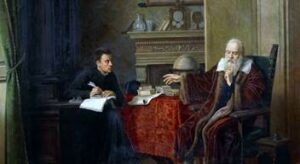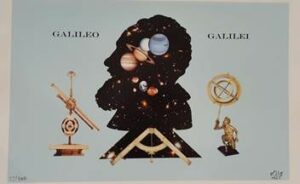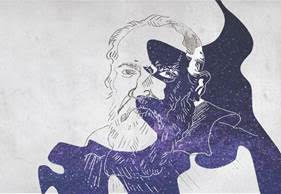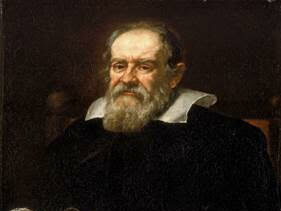 Galileo Galilei: The Visionary Who Unvelied the Secrets of the Cosmos
Galileo Galilei: The Visionary Who Unvelied the Secrets of the Cosmos
The realm of science and astronomy has been graced with brilliant minds throught history but few have left as indelieble mark as Galileo Galilei. Born in Pisa, Italy, on February 15, 1564, Galileo’s exceptional insights revolutionized our understanding of the cosmos and laid the groundwork for modern physics and astronomy. In this blog, we will explore the life, achievements and lasting impact of this iconic scientist.
Galileo Galilei’s Life and Education
Galileo Galilei’s passion for scientist inquiry was evident from a young age. Son of a music theorist and a talented musician, Galileo initally pursued studies in medicine at the University of Pisa. However, his curiosity and fascination towards the natural world led him to shift his focus to mathematics and physics. During his studies, he encountered the works of Archimedes, Euclid and other ancient scholars, which significantly influenced his approach to scientific research.
 Groundbreaking Discoveries and the Telescope
Groundbreaking Discoveries and the Telescope
One of Galileo’s most remarkable achievements was his groundbreaking work with the telescope. In 1609, upon hearing about the recently invented device, Galileo constructed his own telescope and began observing the night sky. These observations would prove to be transformative for astronomy.
Galileo was the first to observe the moon’s rough surface, which debunked the prevailing belief that the moon was a perfectly smooth celestial body. He also discovered the four largest moons of Jupiter, now known as the Galilean moons, revolutionizing our understanding of planetary systems. These observations provided compelling evidence that not everything in the cosmos revolved around the Earth, as the geocentric model of the universe suggested.
Controversy and Conflict with the Church
Galileo’s findings were not always met with open arms. In fact, his support for the heliocentric model proposed by Nicolaus Copernicus placed him in direct conflict with the geocentric vievs endorsed by the Catholic Church at the time. Galileo’s revolutionary ideas were seen as a challenge to the prevailing religious dogma, which held that the Earth was the center of the universe.
In 1616, the Catholic Church issued a decree condemning the heliocentric model as heretical and prohibited Galileo from promoting or defending these ideas. Despite this, Galileo continued his research and published his most famous work, “Dialogue Concerning the Two Chief World Systems”, in 1632. In this book, he defended the heliocentric model, drawing parallels between the Earth and other celestial bodies. This led to his trial by the Roman Catholic Inquisition in 1633, where he was found guilty of heresy and placed under house arrest for the rest of his life.
 Legacy and Impact
Legacy and Impact
Despite the persecution he faced, Galileo’s contribution to science and humanity endures to his day. His support for the heliocentric model paved the way for modern astronomy and influenced future scientists, including Sir Isaac Newton and Johannes Kepler. Galileo’s emphasis on empirical evidence and the importance of experimentation laid the fpoundation for the scientific method that guides modern scientific inquiry.
Furthermore, Galileo’s work also impacted the fields of physics and engineering. His experiments on falling objects and the principles of motion contributed to the eventual formulation of Newtons’s laws of motion.
Galileo Galilei was not only a visionary astronomer but also a courageus thinker who defied the norms of his time to pursue truth and knowledge. His legacy serves as a testament to the power of scientific inquiry and the human thirst for understanding the cosmos. Galileo’s discoveries and contributions have enriched our comprehension of the universe and continue to inspire future generations of scientists to reach for the tars in search of truth and enlightenment.
Do you want to know more about Galileo Galilei’s Life and history? Then, take a look here!



